What Should Syrians Learn from Cambodians?
Mansour Omari
Translated from Arabic by Enab Baladi
“Uncertainty was the worst I have suffered. He who works hard, is forced to work to death, and he who shows weakness and inability to work get killed”, said to me Ben Bao, the Cambodian survivor, describing the dilemma he faced during his life in the Khmer Rouge’s death camps in Cambodia.
I met Bao, at his home in the American Virginia last December. We sat in the kitchen of his house where its walls were decorated with family photos and artifacts from of Cambodian heritage, his homeland. We were talking about our experiences in surviving killer regimes, when he spoke to me about his experience in the Communist labor camps, and the horrors he suffered during his detention there, while the colourful lights of the near Christmas tree were reflecting on Bao’s face. Bao strove to stay in the margin of killed-killed situation, which contributed to his survival from the “killing fields”.
Ben lives safe and quiet life today with his wife and children in the United States, which received thousands of Cambodian refugees following the Khmer Rouge massacres. Ben is the founder of the Cambodian Community Day.
Between 1975 and 1979, the Khmer Rouge under the leadership of Pol Pot, “brother number one”, committed one of the worst crimes of the 20th century. Around 2 million people died under the communist rule, which imposed a brutal regime of forced labor, thought control and mass executions in Cambodia. The goal was to turn the Southeast Asian country into a non-class agricultural utopia. The result was the total destruction of an authentic heritage and a frightening new term the world faced: “killing fields”
The Khmer Rouge began their reign by killing officials who had surrendered from the previous government and brutally emptying the capital and other cities. Soldiers dressed in black robbed millions of people into the countryside and put them to work as slaves digging the canals and planting crops. The Khmer Rouge banned religion, popular culture and all forms of self-expression. They separated families from each other, forcing children to join the mobile labor brigades.
The Cambodian Khmer Rouge classified Cambodians into among “pure” citizens who were qualified to build the revolution, and the non- pure. On similar grounds to the classification of the Assad regime of Syrian citizens into “good” and “negative” citizens, in its secret official correspondences. Shortly after their seizure of power, they arrested and killed thousands of soldiers, military officers and civil employees.
Anyone who doubted the new regime was tortured and killed. Over the next three years, since they took power, they executed hundreds of thousands of intellectuals, cities residents, minorities such as the Cham, Vietnamese and Chinese, and Muslims, and even many of their soldiers and party members who were accused of being traitors. Many were detained in prisons, where they were arrested, interrogated, tortured and executed. Including the infamous S-21 prison, which held 14,000 prisoners, only 12 of them survived.
Poor management of the economy has led to shortages of food and medicine, and many Cambodians have died of disease and hunger.
Vietnam invaded Cambodia and overthrew the Pol Pot regime. But a new civil war began nearly three decades before any Khmer Rouge leaders were brought to justice. In 2006, the United Nations and the Cambodian Government opened a joint court known. Today, nearly 40 years later, the court convicted the head of the Khmer Rouge regime Khieu Samphan, 87, and “brother number two” Nuon Chea, 92, for crimes against humanity and genocide against minorities such as Sham and Muslims. Cambodians waited long to get some justice and get Samphan and Chea condemned for Genocide. Although some of Syria’s criminal leaders have been convicted in European countries, they are still free and committing horrible crimes. The United Nations persist to acknowledge Syria’s Assad, who is not convicted yet and still at large, as the legitimate representative of Syrians, although he has killed and displaced about half of them, and is responsible for the killing of all Syrians from all sides.
Khmer Rouge Tribunal is not only working on trials, but also trying to give a measure of peace and conclusion to the victims and Cambodian society as a whole. Its proceedings are open to the public. Victims can register as “civil parties” to question defendants during court hearings and claim various types of compensation.
A group of lawyers represents 4,000 Khmer Rouge victims and relatives of victims collectively in the trial. In the Syrian case, so far, Syrian plaintiffs do not exceed dozens.
The Tribunal faced criticism of the high cost of the operation and the low number of indictments. Nevertheless, the Court reflected a growing global consensus that, over time, the perpetrators of the worst crimes of the modern age must be held accountable and in a framework that helps survivors to reform their lives. Here, too, the symbolic side of the trials is important for Syrians. On the one hand, these trials bring back the Syrians’ confidence in the values and humanity of the international community, and on the other hand send letters to the perpetrators and those who think of committing similar crimes, that justice is the ultimate fate no matter how long it takes.
References
Cambodia Tribunal Monitor
United States Holocaust Memorial Museum
if you think the article contain wrong information or you have additional details Send Correction
-
Follow us :
Most viewed
- Syrian Defense Ministry appoints "Abu Amsha" as Hama Brigade commander
- SDF faces two fronts... Damascus negotiates and Ankara wants war
- Former Syrian Interior Minister Mohammad al-Shaar surrenders to authorities
- Al-Sharaa meets Bin Salman: Together towards a true partnership
- Syrians hope for a new state without "wasta"

















 A
A
A
A
A
A
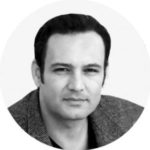


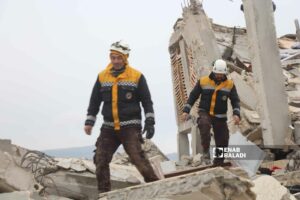
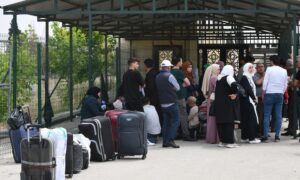
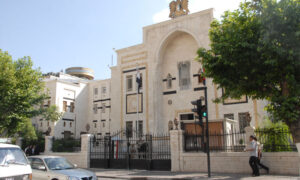
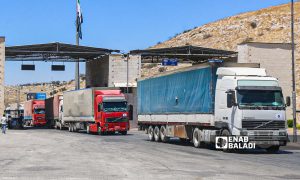
 More Opinion
More Opinion